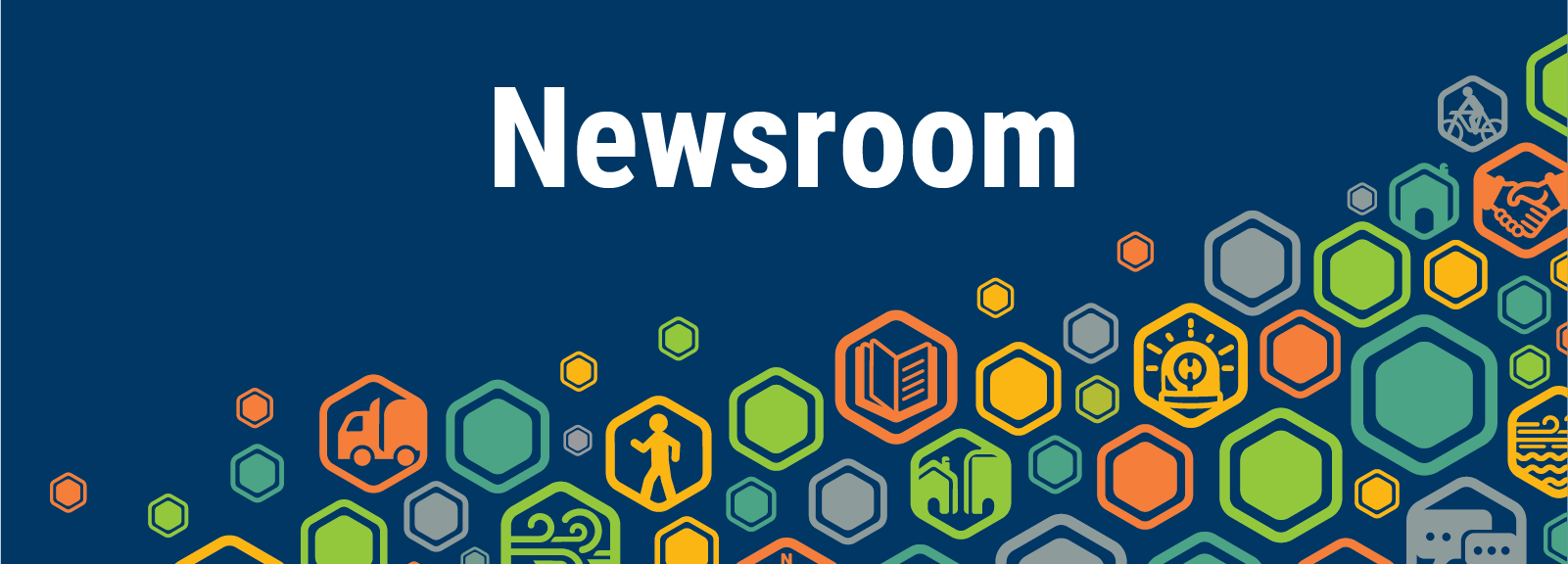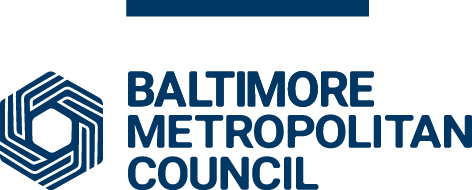
[Baltimore, MD, March 4, 2021]
The Baltimore Metropolitan Council (BMC) applauds the release of a Request for Proposals (RFP) for a renewable power purchase agreement on behalf of local governments in the Baltimore region. Baltimore County, as chair of the Baltimore region’s Energy Board, will lead the RFP process.
The Baltimore Regional Cooperative Purchasing Committee (BRCPC) works with regional procurement officers from its eight county/city membership to aggregate purchasing volumes of like commodities and services to leverage government buying power. BMC hosts and provides staff support to the work of BRCPC and its subcommittees, including the Energy Board.
The Energy Board is responsible for energy cost management and procurement programs for both electric and natural gas supply on behalf of its 24 members (including local governments, community colleges, public schools, museums and libraries). The committee reviews and assesses energy market developments, including renewable energy, on an ongoing basis. The combined portfolios for the Energy Board’s 24 participants was $84.7 million in fiscal year 2020. The Energy Board purchases more than 1.62 million MWhs of electricity and 2.5 bcf in natural gas per year. The Board is the largest purchaser of electricity in the State of Maryland.
By working together, Energy Board members negotiate significant cost savings on energy purchases. When compared to Baltimore Gas and Electric’s (BGE’s) standard offer service (SOS) rates alternative during FY20 for non-hourly priced accounts, members saved $10.0 million on electricity. From the electric portfolio’s inception in June 2006 through June 30, 2020, the portfolio has generated savings of $173.8 million when compared to BGE’s non-hourly priced SOS rates.
“The cooperative energy purchasing facilitated through BMC and the Energy Board is a model of regional government collaboration,” said Carroll County Commissioner and BMC Board Chair Stephen Wantz. “We are proud of the nearly 15 years and millions in savings this group has achieved on behalf of taxpayers and we commend our partners in Baltimore County for leading the way in this next evolution of the committee’s work.”
For roughly two years, the Energy Board has explored leveraging their collective buying power to support new renewable energy development and secure additional renewable energy certificates in accordance with the State of Maryland’s goal of achieving 50 percent renewable energy by 2030. The RFP released today by Baltimore County represents months of analysis, discussion and deliberation by the participating organizations. The RFP seeks a supply of 160,000 to 240,000 MWh of renewable energy and associated renewable energy certificates annually from one or more of the following sources: wind, solar, or other renewable energy plants. The Energy Board aims to achieve a 10 to 15 percent mix of renewable sources by comparison to its current energy portfolio, with electricity delivery to begin as soon as July 1, 2022.
“This is an important next step in our County’s—and our region’s—ongoing commitment to combatting climate change and growing the green economy,” said Baltimore County Executive and Immediate Past-Chair of the BMC Board Johnny Olszewski. “This planned power purchase will help our governments better support renewable energy production today and will reduce our carbon footprint in the years to come.”
This renewable power purchase was spurred by a number of factors, including new renewable portfolio standard goals set by the State, growing concerns about the effects of climate change, leadership by regional peers in Philadelphia and greater Washington, and a desire to build capacity in the renewable energy market.
“We are extremely proud of this RFP and the potential for a sizable renewable power purchase agreement for the Baltimore region,” said BMC Executive Director Mike Kelly. “As the single largest purchaser of energy in Maryland, we have an important part to play in achieving our state’s portfolio standard goals of 50 percent renewable energy by 2030.”
The following Energy Board members will participate in this procurement: Anne Arundel Community College, Anne Arundel County Government, Anne Arundel County Public Schools, Baltimore City Government, Baltimore City Housing Authority, Baltimore City Public Schools, Baltimore County Government, Baltimore County Libraries, Baltimore County Public Schools, Baltimore County Revenue Authority, Baltimore Museum of Art, Carroll County Government, City of Aberdeen, City of Annapolis, City of Bowie, City of Westminster, Community College of Baltimore County, Harford Community College, Harford County Government, Harford County Public Schools, Howard Community College, Howard County Government, Howard County Public Schools, Walters Art Museum. Additionally, the following non-Energy Board members will also participate: Montgomery County Public Schools, and Eastern Shore of Maryland Educational Consortium – Energy Trust.
BPAG Agenda - Mar 17, 2021
Bicycle & Pedestrian Advisory Group Agenda - Mar 17, 2021
BPAG Minutes - Jan 20, 2021
Bicycle & Pedestrian Advisory Group Minutes - Jan 20, 2021
TC Pres - Mar 2, 2021- Overview of PublicInput Platform
Technical Committee Presentation -Mar 2, 2021 - Overview of PublicInput Platform
TC Pres - Mar 2, 2021 - TIP Amendments
Technical Committee Presentation - Mar 2, 2021 - TIP Amendments
BRSS Pres - Dec 17, 2021 - TPB Regional Safety Program
Baltimore Regional Safety Subcommittee Presentation-Dec 17, 2021 - TPB Safety Program
BRSS Pres - Dec 17, 2021 - Safety Targets for 2021
Baltimore Regional Safety Subcommittee Presentation-Dec 17, 2021 - Safety Targets 2021

The Baltimore Metropolitan Council (“BMC”) has released a Public Access Database for the Maryland Travel Survey (MTS) that it recently conducted on behalf of MDOT.
The Maryland Travel Survey is BMC’s primary source for demographic and travel data. Individual and Household demographics (e.g., gender, income, employment status, age, and number of children) have more influence over people’s travel activity and travel need than any other factor. Demographics are important for planning all transportation modes and are particularly important for planning transit service, where data on demand for transit service is aggregated by cohorts, e.g., young adults, elderly, etc.
The MTS Public Access Database (PADB) is available to researchers and the general public. It provides access to the MTS Survey data at a level of detail that allows for in-depth analysis of demographics and travel behavior, while also protecting the confidential information of Survey households.
“The MTS Public Access Database will make the results of the Maryland Travel Survey, which encompassed the Eastern Shore, the Baltimore Region, and Western Maryland, available to a much larger audience,” said BMC Director of Transportation Planning, Todd Lang.
Those wishing to access the PADB should follow the link to the BMC Website and complete the online Request Form, making sure to provide their contact information. Once BMC receives your request, we will email the PADB to you.
BRSS Pres - Feb 25, 2021 - Safe Systems
Baltimore Regional Safety Subcommittee Presentation -Feb 25, 2021 -- Safe Systems
BRSS Pres - Dec 17, 2020 - Be the Driver
Baltimore Regional Safety Subcommittee Presentation -Dec 17, 2020 -- Be the Driver
